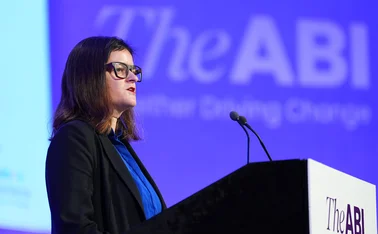
The final countdown to FSA regulatory reform
The month's Power Hour, in association with Groupama Insurances, focuses on the various areas of the new regulatory regime that the panellists think the Financial Services Authority will look to change from 14 January in its first year as statutory regulator of the sector
What are the first elements that the Financial Services Authority (FSA) will look to develop post 14 January?
Colin S: A fairly obvious one is the application process. We are told the online facility won't be available from 14 January. I presume therefore that the standard hard-copy version for Part 4 permission will apply.
Colin D: The FSA is going to be looking at any issues they feel impact on their objectives. When you talk about application processes, they are still quite concerned about the
Only users who have a paid subscription or are part of a corporate subscription are able to print or copy content.
To access these options, along with all other subscription benefits, please contact info@insuranceage.co.uk or view our subscription options here: https://subscriptions.insuranceage.co.uk/subscribe
You are currently unable to print this content. Please contact info@insuranceage.co.uk to find out more.
You are currently unable to copy this content. Please contact info@insuranceage.co.uk to find out more.
Copyright Infopro Digital Limited. All rights reserved.
As outlined in our terms and conditions, https://www.infopro-digital.com/terms-and-conditions/subscriptions/ (point 2.4), printing is limited to a single copy.
If you would like to purchase additional rights please email info@insuranceage.co.uk
Copyright Infopro Digital Limited. All rights reserved.
You may share this content using our article tools. As outlined in our terms and conditions, https://www.infopro-digital.com/terms-and-conditions/subscriptions/ (clause 2.4), an Authorised User may only make one copy of the materials for their own personal use. You must also comply with the restrictions in clause 2.5.
If you would like to purchase additional rights please email info@insuranceage.co.uk







